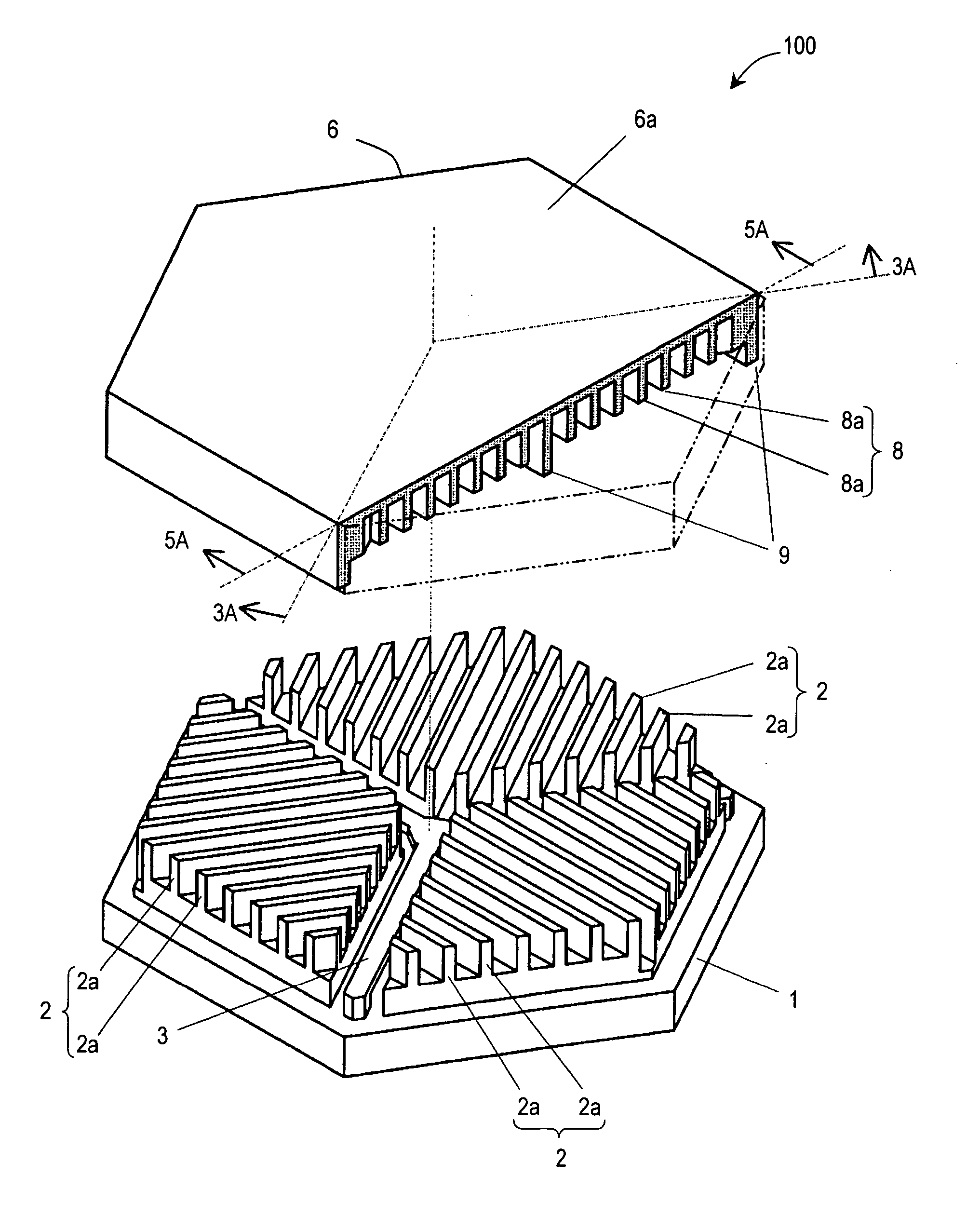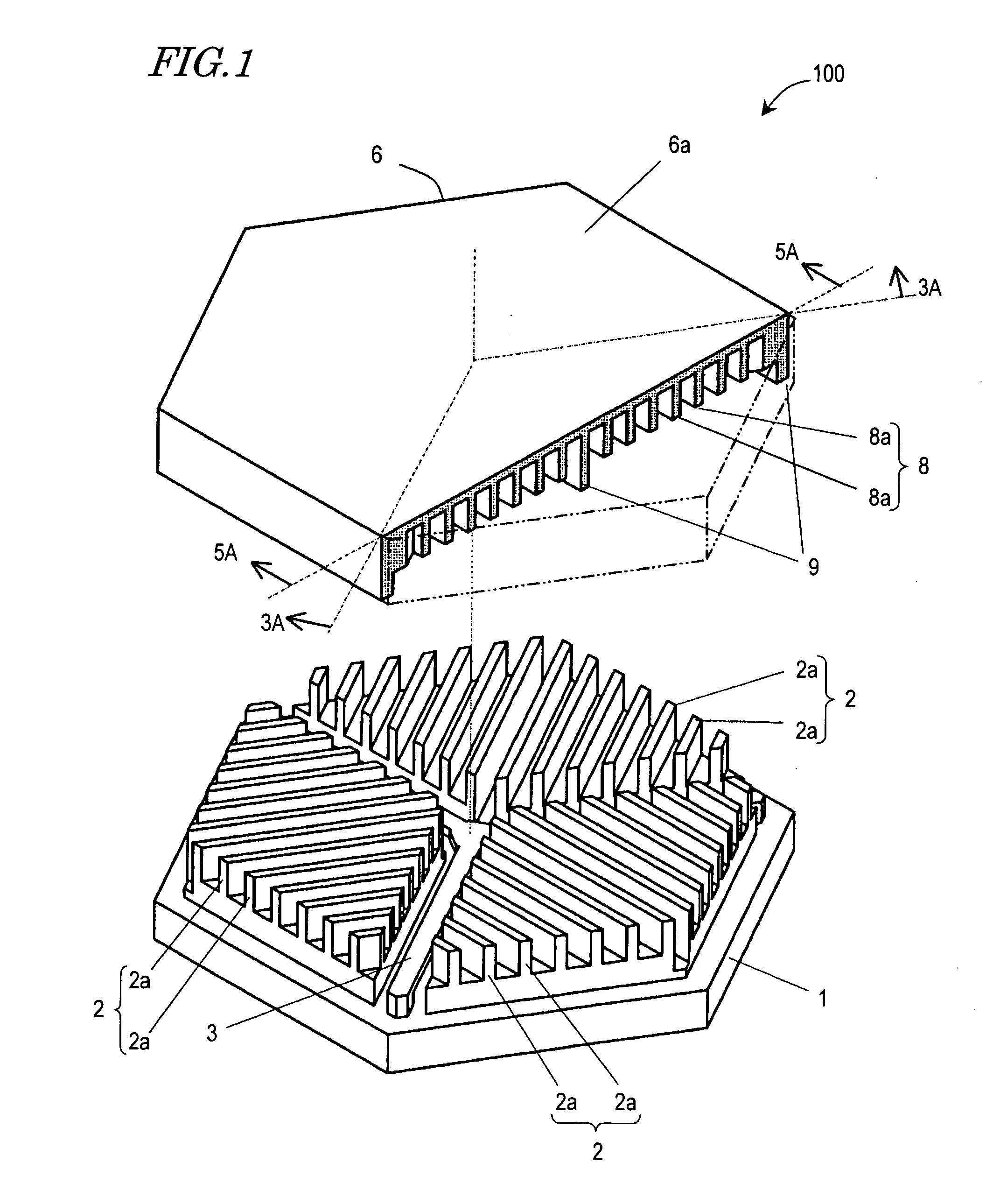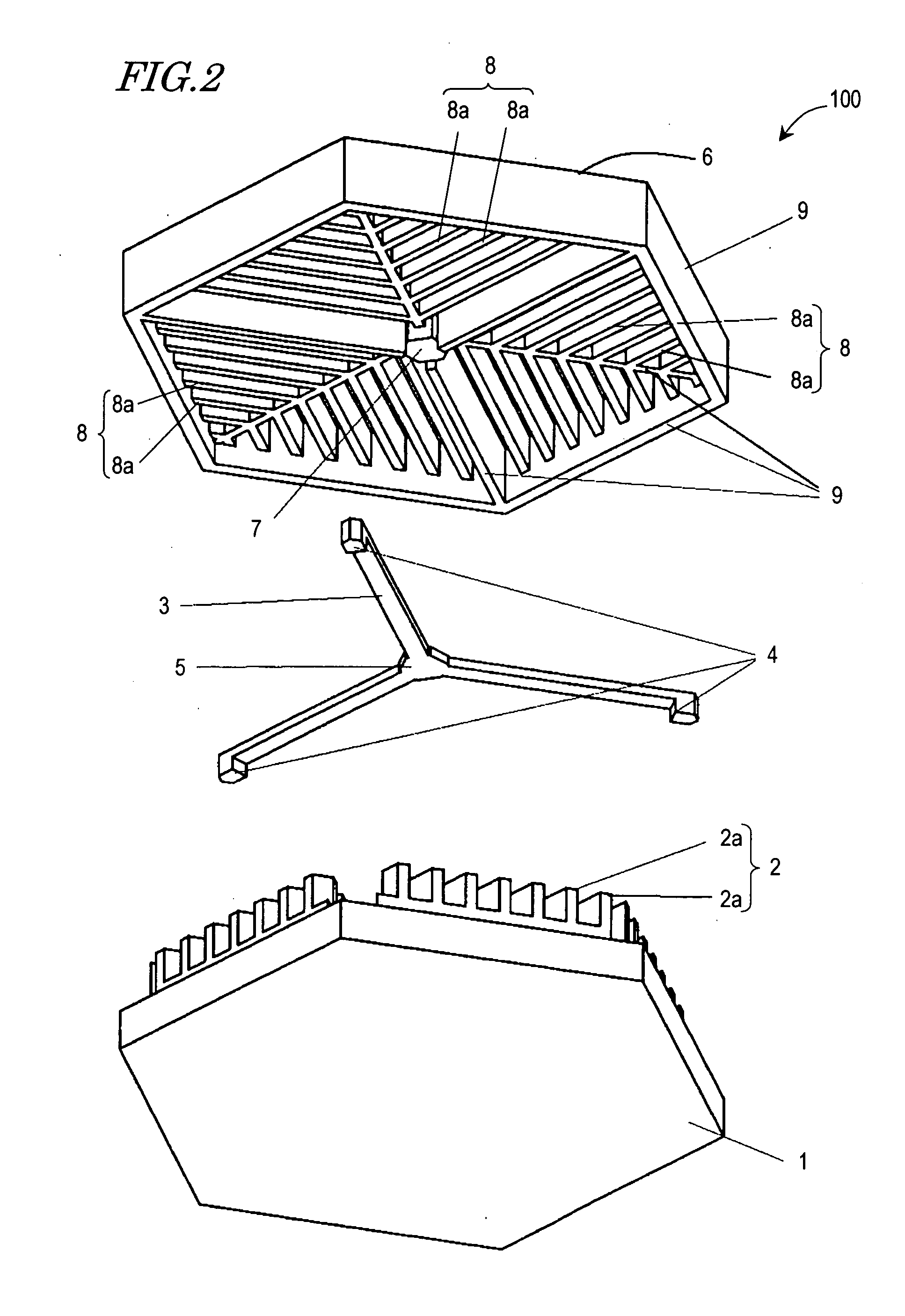Microactuator
a micro-actuator and actuator technology, applied in the field of micro-actuators, can solve the problems of low rigidity increased mass of the movable section, and increased requiring a greater driving force, and achieve the effect of high rigidity and low mass
- Summary
- Abstract
- Description
- Claims
- Application Information
AI Technical Summary
Benefits of technology
Problems solved by technology
Method used
Image
Examples
embodiment 1
(Embodiment 1)
[0046] With reference to FIGS. 1 to 6, a microactuator according to a first embodiment of the present invention will be described.
[0047] Firstly, FIGS. 1 and 2 will be referred to, which are exploded perspective views schematically showing the microactuator 100 of the present embodiment. Specifically, FIG. 1 shows the microactuator 100 as viewed obliquely from above, whereas FIG. 2 shows the microactuator 100 as viewed obliquely from below. In FIG. 1, a portion of the movable section is cut away in order to show a rear cross-sectional view of the movable section. The microactuator 100 is produced by a micromachining technique employing a semiconductor process or a MEMS (Micro Electro Mechanical System) technique.
[0048] The microactuator 100 includes: a base 1; a plurality of first comb electrodes 2 supported by the base 1; a movable section 6; and an elastic supporting member 3 for supporting the movable section 6 in such a manner as to allow the movable section 6 to...
embodiment 2
(Embodiment 2)
[0067] Referring to FIG. 7, a microactuator according to a second embodiment of the present invention will be described.
[0068]FIG. 7 is a plan view schematically showing a movable section 16 according to the present embodiment. In the present embodiment, the microactuator 100 comprises the movable section 16, instead of the movable section 6.
[0069] In addition to the component elements employed in the movable section 6 of Embodiment 1, the movable section 16 additionally comprises at least one reinforcement rib 11 (a plurality of such reinforcement ribs 11 are illustrated in the present embodiment). Each reinforcement rib 11 extends through a corresponding one of the second comb electrodes 8, and extends along a direction perpendicular to the direction in which the second comb teeth 8a of that second comb electrode 8 extend. Each reinforcement rib 11 has the same height as that of those reinforcement rib 9 whose height is greater than that of the second comb teeth 8a...
embodiment 3
(Embodiment 3)
[0070] Referring to FIG. 8, a microactuator according to a third embodiment of the present invention will be described.
[0071]FIG. 8 is a plan view schematically showing a movable section 26 according to the present embodiment. In the present embodiment, the microactuator 100 comprises the movable section 26, instead of the movable section 6.
[0072] Instead of the second comb electrodes 8 in the movable section 6 of Embodiment 1, the movable section 26 includes a plurality of second comb electrodes 28. Each second comb electrode 28 includes a plurality of second comb teeth 8b in the form of concentric circles. In the present embodiment, the first comb teeth 2a are also shaped as concentric circles (not shown), correspondingly to the second comb teeth 8b. The second comb teeth 8b, each of which lies perpendicular to the radially-extending reinforcement ribs 9, enhances the rigidity of the movable section 26. Since the positional relationship between the first comb elect...
PUM
 Login to View More
Login to View More Abstract
Description
Claims
Application Information
 Login to View More
Login to View More - R&D
- Intellectual Property
- Life Sciences
- Materials
- Tech Scout
- Unparalleled Data Quality
- Higher Quality Content
- 60% Fewer Hallucinations
Browse by: Latest US Patents, China's latest patents, Technical Efficacy Thesaurus, Application Domain, Technology Topic, Popular Technical Reports.
© 2025 PatSnap. All rights reserved.Legal|Privacy policy|Modern Slavery Act Transparency Statement|Sitemap|About US| Contact US: help@patsnap.com



